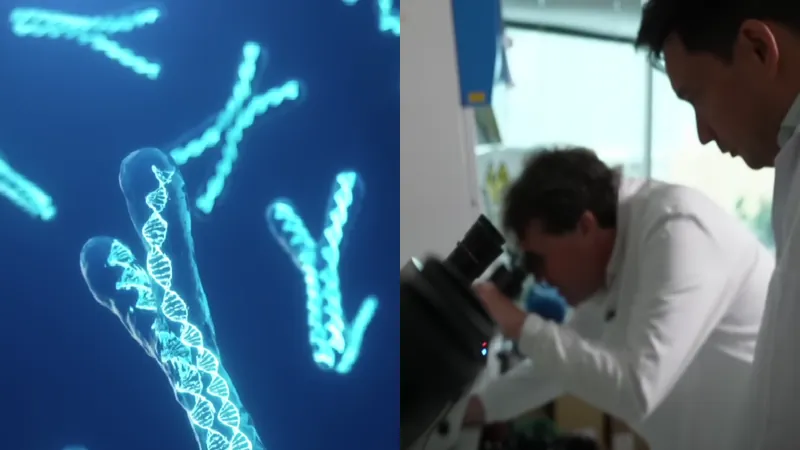
Revolutionary Machine Learning Tool Transforms MRI Data Analysis for Alzheimer's Patients
2025-06-05
Author: Daniel
Unlocking the Secrets of Alzheimer's with Neuroharmony
A groundbreaking machine learning innovation, dubbed Neuroharmony, is set to change the landscape of MRI data analysis in Alzheimer's patients. This cutting-edge tool leverages image quality metrics to eliminate scanner-induced variabilities in brain volumetric data, effectively harmonizing findings across different MRI systems.
The Power of Multiclass Analysis
Developed by Archetti and a team of researchers, this advanced multiclass model assesses data from both cognitively healthy individuals and those with impairments. Uniquely, it takes into account the complex interactions between Alzheimer’s pathology and image quality during the harmonization process.
Testing the Waters: A Vast Dataset Approach
To validate its capabilities, the Neuroharmony model was applied to an expansive dataset comprised of 20,864 participants across 11 cohorts, utilizing 43 MRI scanners spanning three continents. The results were astounding, outperforming other existing harmonization strategies, especially in handling data from previously unseen scanners while maintaining significant biological differences between diagnostic groups.
Pioneering a New Era in MRI Research
Archetti emphasizes that this innovative approach is designed to preserve the critical influence of cognitive status in data variability, ensuring that biological markers remain intact throughout the analysis. This takes harmonization to a new level by enhancing accuracy and consistency across different imaging systems.
Addressing the Challenge of MR Scanner Variability
Renowned neuroradiologist Dr. Sven Haller underscores the significant challenge posed by variability in MRI scanners. With patients often switching facilities, subtle changes in brain imaging can lead to questions about the validity of observed changes. Neuroharmony aims to address these concerns, potentially executing the ultimate goal of harmonization: preserving disease-related variabilities while eliminating scanner-related discrepancies.
Future Prospects: Beyond Alzheimer's?
While Neuroharmony primarily focuses on Alzheimer's, its applications could extend beyond cognitive impairments to various psychiatric disorders and other neurological conditions. Archetti has expressed optimism about further refining the model to accommodate different dementias and other brain disorders.
Join the Research Revolution!
For those eager to dive deeper into this transformative study, check out the research published in **Radiology: Artificial Intelligence** titled, "A Machine Learning Model to Harmonize Volumetric Brain MRI Data for Quantitative Neuroradiologic Assessment of Alzheimer Disease." This groundbreaking work could be a game-changer in the realm of medical imaging!


 Brasil (PT)
Brasil (PT)
 Canada (EN)
Canada (EN)
 Chile (ES)
Chile (ES)
 Česko (CS)
Česko (CS)
 대한민국 (KO)
대한민국 (KO)
 España (ES)
España (ES)
 France (FR)
France (FR)
 Hong Kong (EN)
Hong Kong (EN)
 Italia (IT)
Italia (IT)
 日本 (JA)
日本 (JA)
 Magyarország (HU)
Magyarország (HU)
 Norge (NO)
Norge (NO)
 Polska (PL)
Polska (PL)
 Schweiz (DE)
Schweiz (DE)
 Singapore (EN)
Singapore (EN)
 Sverige (SV)
Sverige (SV)
 Suomi (FI)
Suomi (FI)
 Türkiye (TR)
Türkiye (TR)
 الإمارات العربية المتحدة (AR)
الإمارات العربية المتحدة (AR)